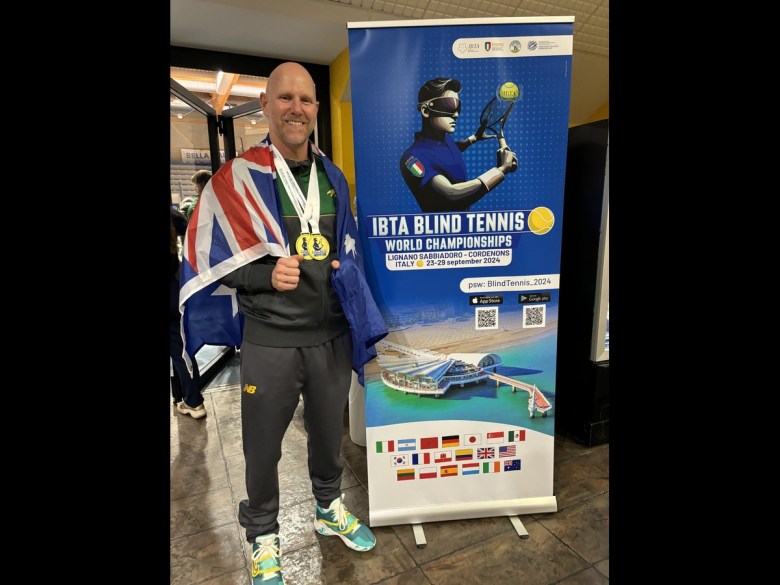For athlete Ross Patterson, sport is a way of life – and tennis has been his road to world domination.
Tennis became his sport of choice after developing osteomyelitis as a child, which meant he had to give up his beloved AFL and choose a non-contact sport from the age of 11.
He proved to be pretty good at tennis and set himself the goal of progressing to pro level, training almost every day of the week for the next 12 years to chase that dream.
“But little did I know that I had an invisible disability that would have made that dream pretty much impossible to achieve,” Patterson said.
He made it to the top level pennant in Victoria, but tennis was becoming harder and harder to play. And at the age of 35, the rising star was diagnosed with retinitis pigmentosa.
The diagnosis didn’t stop him, and he began searching for tennis options for people with low vision almost immediately. He discovered blind and low vision tennis, and in his own words, hasn’t looked back.
“It ended up opening doors for me to represent Australia, as I have done over the last two [years] – the World Championships this year and the World Games last year – and to compete at the highest level. So all those years of chasing the dream earlier on, and the thousands and thousands of balls hit and thousands of hours spent on the court have paid off,” Patterson said.
Patterson is now the world number one in singles and doubles of blind and low vision tennis.
He describes representing Australia at the world level as “a huge honour” which has allowed him to make connections with other tennis players from around Australia and the world.
And earlier this year, he was awarded the most outstanding athlete with a disability from Tennis Tasmania.
“I play tennis for the enjoyment and to play at the highest level. But when you’re recognised in that way… again, it’s another great honour. To say that I was chuffed was an understatement. I was really proud, but really proud of not only myself, but the sacrifices my family have made to allow me to play,” he said.
Having now reached the pinnacle of his career, Patterson said he feels he has ticked all of the boxes. His goal now is to stay at the top of the game for as long as possible – and perhaps to stay there for long enough to make it to the 2032 Paralympics.
“And if I can’t play, hopefully I’m there in a support capacity, whether it’s in a coaching capacity or some other way of supporting the team,” he said.

